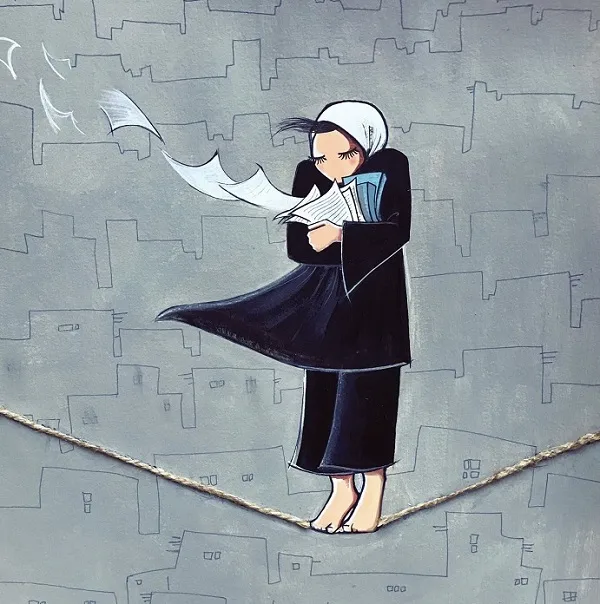The Taliban regime in Afghanistan continues to receive widespread international condemnation, including from the Islamic world, for reneging on its promise to let Afghan girls return to school.
Earlier this week, the Taliban administration had announced the reopening of all schools in the country, including those just for girls, on March 21 – the first day of the Afghan New Year.
However, as thousands of secondary-school girls around the country turned up at their school for the first time in seven months on Wednesday, they were sent back home by the hardcore fundamentalists, thus contradicting their public assurances to the Afghan people and to the international community.
Mawlawi Aziz Ahmad Ryan, Director of Publications and spokesman for the Ministry of Education, said that schools for girls from the sixth grade and above will remain closed until further notice.
"After compiling a comprehensive plan in this field in accordance with Islamic law and Afghan culture and traditions, as well as the ruling of the Islamic Emirate, female schools and high schools will be officially informed," Ryan was quoted as saying by Kabul-based Bakhtar News Agency, the official state news agency of the current Afghan government.
On Friday, the Foreign Ministers of the United Kingdom, Canada, France, Italy, Norway, the United States of America, and the High Representative of the European Union issued a joint statement, calling on the Taliban urgently to reverse the decision which will have consequences far beyond its harm to Afghan girls.
"Unreversed, it will profoundly harm Afghanistan’s prospects for social cohesion and economic growth, its ambition to become a respected member in the community of nations, and the willingness of Afghans to return from overseas," the statement mentioned.
The Foreign Ministers also said that it will have an "inevitable impact" on the Taliban's prospects of gaining political support and legitimacy either at home or abroad.
In a separate joint statement on Friday, of the female Foreign Ministers of Albania, Andorra, Australia, Belgium, Bosnia and Herzegovina, Canada, Estonia, Germany, Iceland, Indonesia, Kosovo, Malawi, Mongolia, New Zealand, Norway, Sweden, Tonga and the United Kingdom urged the Taliban to live up to their commitments to the Afghan people and also adhere to the international conventions that Afghanistan has subscribed to.
"As women and as foreign ministers, we are deeply disappointed and concerned that girls in Afghanistan are being denied access to secondary schools this spring. The Taliban’s decision to suspend secondary classes until further notice is particularly disturbing as we repeatedly heard their commitments to open all schools for all children," they stated.
"We will watch closely whether the Taliban deliver on their assurances. We will measure them by their actions, not by their words. The scope and extent of our countries’ engagement in Afghanistan beyond humanitarian assistance will be tied to their achievements in this regard," warned the female Foreign Ministers.
What unbelievable courage, bravery & resilience Afghan girls have shown.
Despite the recent detentions of female protesters and activists by the Taliban and summary executions, young girls are protesting today for their basic human right to an education.pic.twitter.com/bRApEG8573
— Shabnam Nasimi (@NasimiShabnam) March 25, 2022
According to the Unicef, which has been supporting the rights of children in Afghanistan since 1949, an estimated 3.7 million children – 60% of them girls – are out-of-school in the country.
"The de facto authorities' decision to delay the return to school for girls from Grade 7 to Grade 12 is a major setback for girls and their futures. With this decision, an entire generation of adolescent girls is being denied their right to an education and being robbed of the opportunity to gain the skills they need to build their futures," said Unicef Executive Director Catherine Russell, earlier this week.
The Muslim world has also expressed its "deep disappointment" over Taliban's "unexpected decision", saying it is "deeply frustrated" with this reversal.
"Though the General Secretariat recognizes that the government in place in Kabul has made some undeniable progress on a few important issues, it still feels concerned that such a decision might send out a negative signal that its commitments, as is the case with the promise to allow high school-aged girls to resume schooling, are not duly fulfilled," the General Secretariat of the Organization of Islamic Cooperation (OIC) said on Thursday.
Also Read: Raising Islamophobia to an international day could divide UN into religious camps – India




















